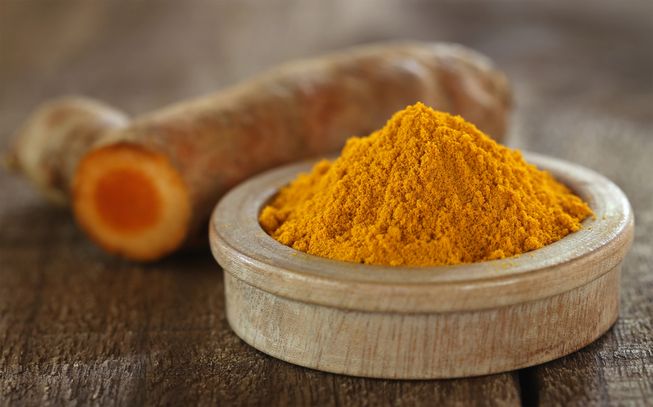
Advertisement
Parsley, rosemary, sage and thyme aren’t as famous as other superfoods like kale or spinach, but these flavorful herbs are a must-have for a traditional Thanksgiving dinner.
These nutrient-rich herbs can be used for Thanksgiving turkey stuffing, or you can pair them with other ingredients like butternut squash. Detailed below are the health benefits of these four traditional Thanksgiving herbs.
Nutritious parsley
You can buy two types of parsley: Flat-leaf and curly. When cooking, it’s best to use Italian flat-leaf parsley as it has a more pronounced flavor. Alternatively, you can use curly leaf parsley for garnish.
If you’re using parsley for a dish, strip the tender leaves off the stems before chopping them up. Save the stems to flavor stocks and soups.
Parsley is an all-purpose herb that adds a fresh, delicate flavor to any dish. Make sure you add parsley leaves into your dish at the last minute so the herb has the freshest flavor and brightest color. You can add parsley to salads, soups and fish recipes.
Two tablespoons (8 grams) of parsley contains two calories and the following nutrients:
- Vitamin A (12 percent of the Reference Daily Intake (RDI)) –Vitamin A is crucial for your immunity and eye health. The essential nutrient can also help boost skin health and improve skin conditions like acne.
- Vitamin C (16 percent of the RDI) – Vitamin C helps boost heart health and is needed for immune health. The vitamin is also a potent antioxidant that protects cells from harmful free radical damage.
- Vitamin K (154 percent of the RDI) – Vitamin K helps support bone and heart health. Consuming two tablespoons of parsley delivers more vitamin K than you need in per day.
Finally, parsley also contains other nutrients like calcium, folate, iron, magnesium and potassium.
Antioxidant-rich rosemary
Rosemary has a comforting and Christmasy piney scent and flavor. Needle-like rosemary leaves are first stripped off the woody stems and chopped up finely. Rosemary leaves shouldn’t be eaten raw and it’s best to cook them before serving. The herb pairs well with chicken and lamb. The herb is full of calcium, iron and vitamin B-6.
Rosemary also offers the following health benefits:
- It boosts digestion – In Europe, rosemary is used to help treat indigestion.
- It’s full of antioxidants and anti-inflammatory compounds – Rosemary is a great source of antioxidants and anti-inflammatory compounds that help strengthen the immune system and boost blood circulation. Studies also suggest that rosemary contains antioxidants that help neutralize free radicals.
- It helps enhance memory and concentration – One study has found that the aroma from rosemary can help improve a person’s concentration, performance, speed, accuracy and even mood.
- It can improve brain health – Researchers have also discovered that rosemary can boost brain health since the herb contains carnosic acid, an ingredient that helps prevent free radicals in the brain.
Anti-inflammatory sage
Sage has soft, velvety leaves that are very tender and smell like pine and eucalyptus. When cooking with sage, strip the leaves off the tough stems.
A member of the mint family, this herb pairs well with poultry, pork and sausage. Sage also complements sweet flavors like butternut squash!
Researchers believe that the health benefits of sage can be attributed to components like camphor, carnosic acid, carnosol and phenolic acids that have therapeutic properties.
- Camphor – Camphor is the oily substance responsible for sage’s pungent aroma. In topical creams and ointments, camphor helps stimulate nerve endings. The substance produces a warm sensation when vigorously applied and a cool sensation when applied gently.
- Carnosic acid and carnosol – Both compounds have antioxidant and anti-inflammatory properties. Carnosic acid and carnosol directly activate peroxisome proliferator-activated receptor gamma (PPAR-gamma), a molecule that helps regulate blood sugar, lipids and inflammation.
- Phenolic acids – Phenolic acids are plant-based chemicals with antioxidant properties. These compounds also protect cells from oxidative damage caused by free radicals.
Studies have also shown that sage has beneficial anti-inflammatory effects that can offer relief for conditions like sore throats and sunburn.
In a 2009 study, Swiss researchers discovered that an extract of sage and echinacea used as an oral spray was as effective in treating an acute sore throat as the combination of chlorhexidine and lidocaine, two pharmaceutical drugs often used in oral anesthetics.
A different 2013 study also suggested that sage oil has both anti-inflammatory and antibacterial effects. The use of sage oil helped relieve mild inflammatory skin conditions like sunburn and folliculitis, reported the scientists.
Antibacterial thyme
Thyme is often associated with Thanksgiving and it can be used in stuffing and to flavor turkey.
Note that thyme stems are woody, so strip the tender leaves off of the herb before cooking. When using thyme, cook the herb to bring out the oils and aromas of the leaves.
Below are some of the amazing health benefits of thyme:
- It has antibacterial properties – Thyme’s antibacterial properties suggest that it can be used to naturally treat acne. When thyme is steeped in alcohol for days or weeks, it turns into a tincture, and scientists in the U.K. have tested the effects of thyme tinctures on acne. According to one study, thyme tincture was more effective at preventing pimples than antiacne products that included benzoyl peroxide.
- It is used as a natural cough remedy – Thyme essential oil obtained from the herb’s leaves is often used as a natural cough remedy. Study findings have shown that a combination of thyme and ivy leaves helped alleviate coughing and other symptoms of acute bronchitis. If you have a cough or sore throat, drink a cup of soothing thyme tea.
- It can help strengthen your immunity – Thyme is rich in vitamins C and vitamin A. The next time you feel a cold coming on, make some thyme tea.
- It can be used as a natural disinfectant – You may not notice it but your home may contain mold, a common and potentially dangerous air pollutant. If you see signs of mold at home, use thyme oil to get rid of low mold concentrations. According to a study, both thyme essential oil and thymol have many fungicidal properties.
Thanksgiving is just around the corner. Prep a list of dishes that you want to serve and use nutritious herbs like parsley, rosemary, sage and thyme to make a traditional Thanksgiving meal that your family and guests won’t forget!
Sources:
Advertisements







